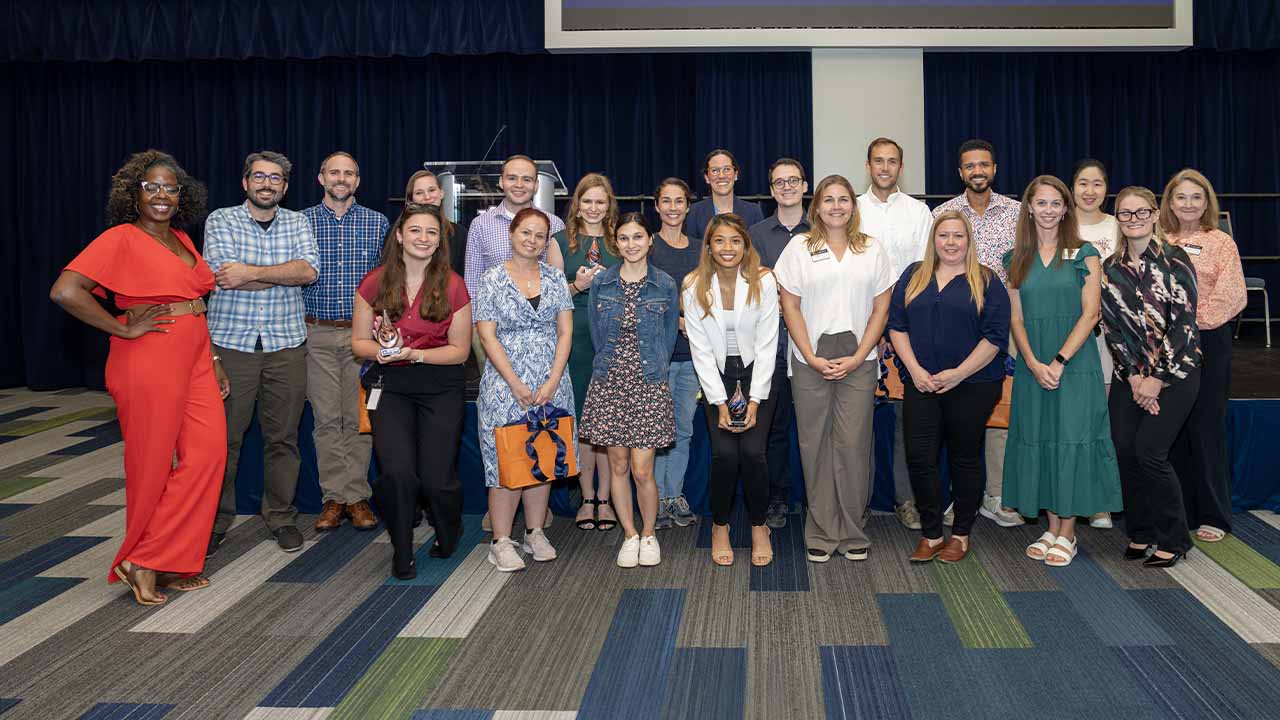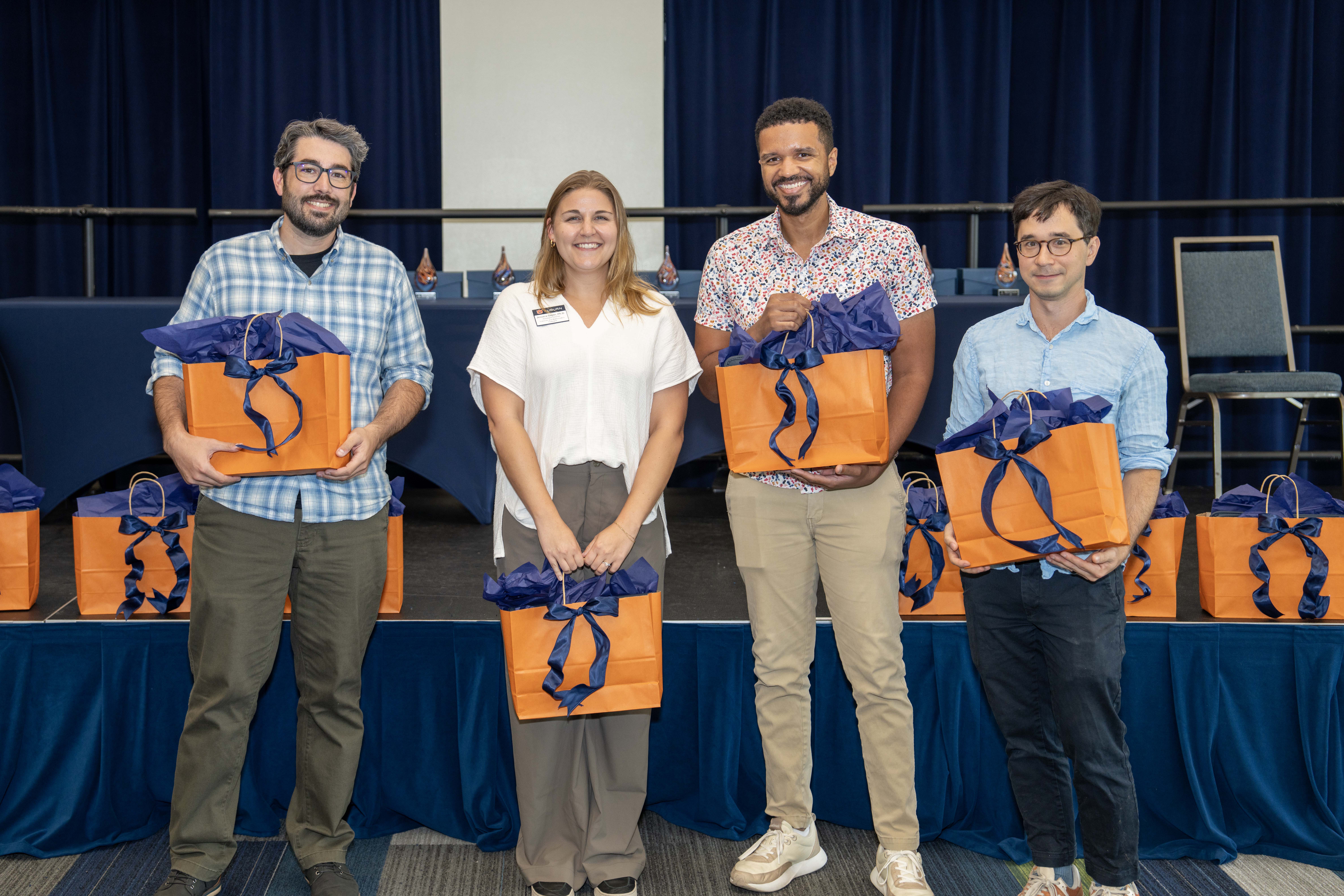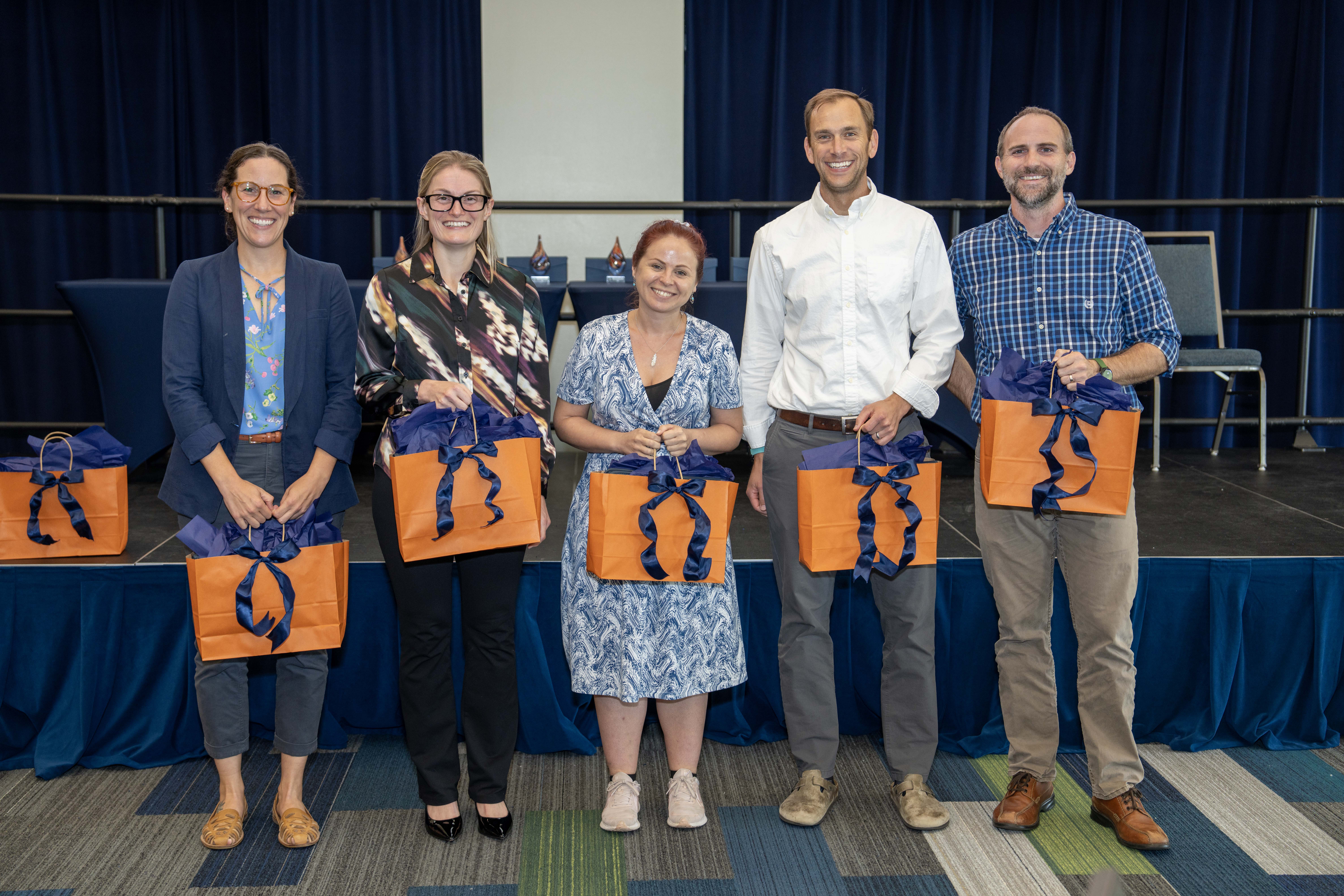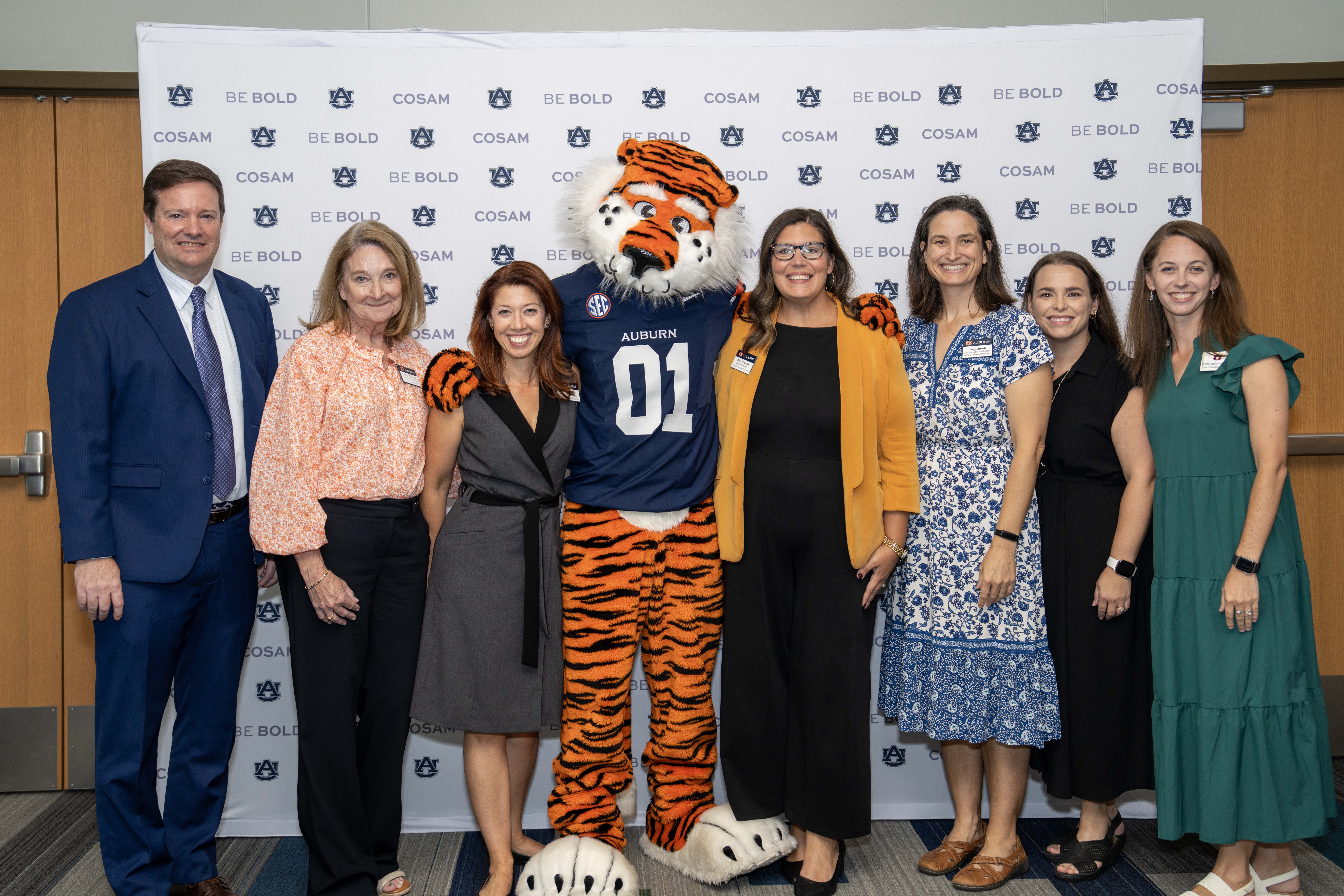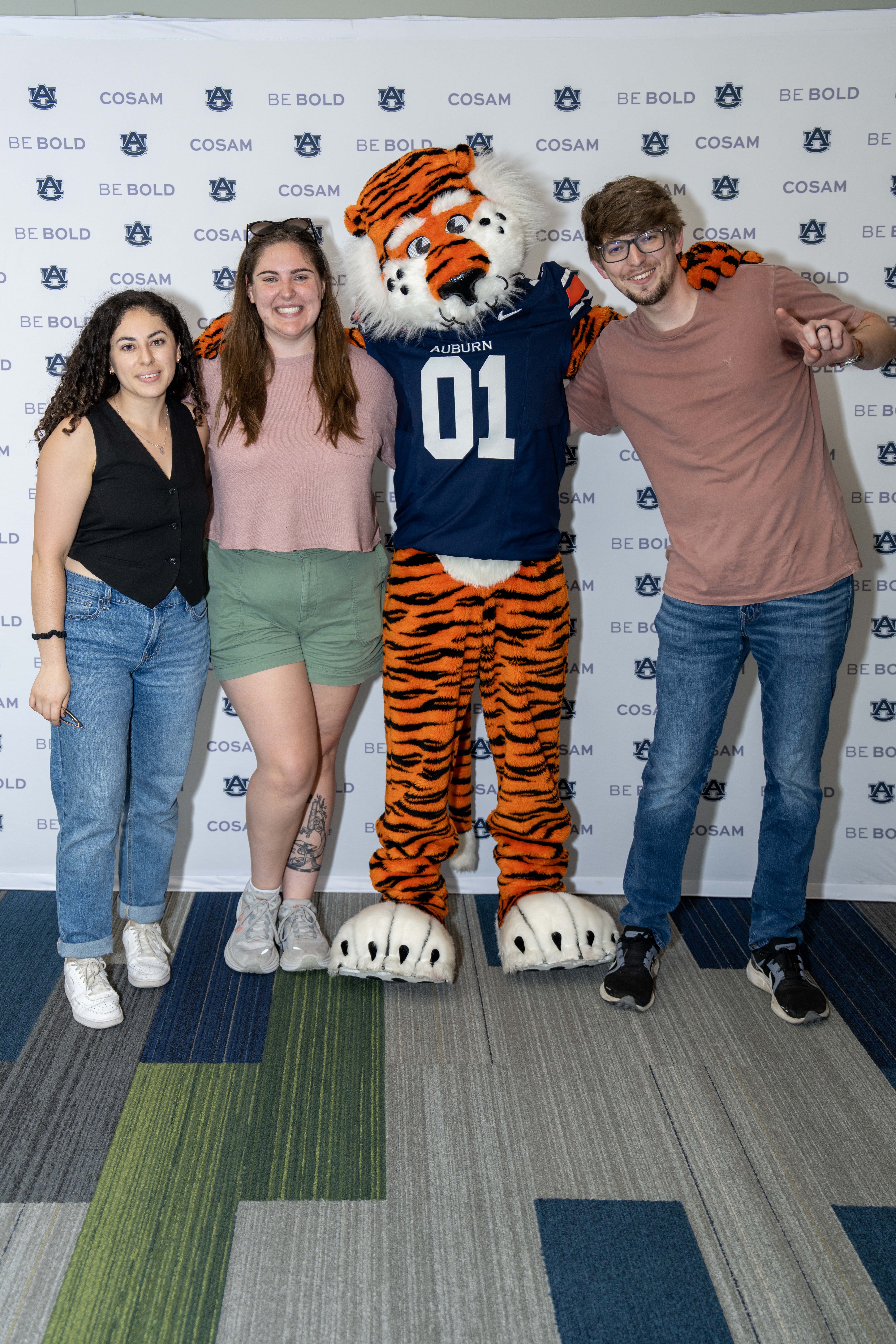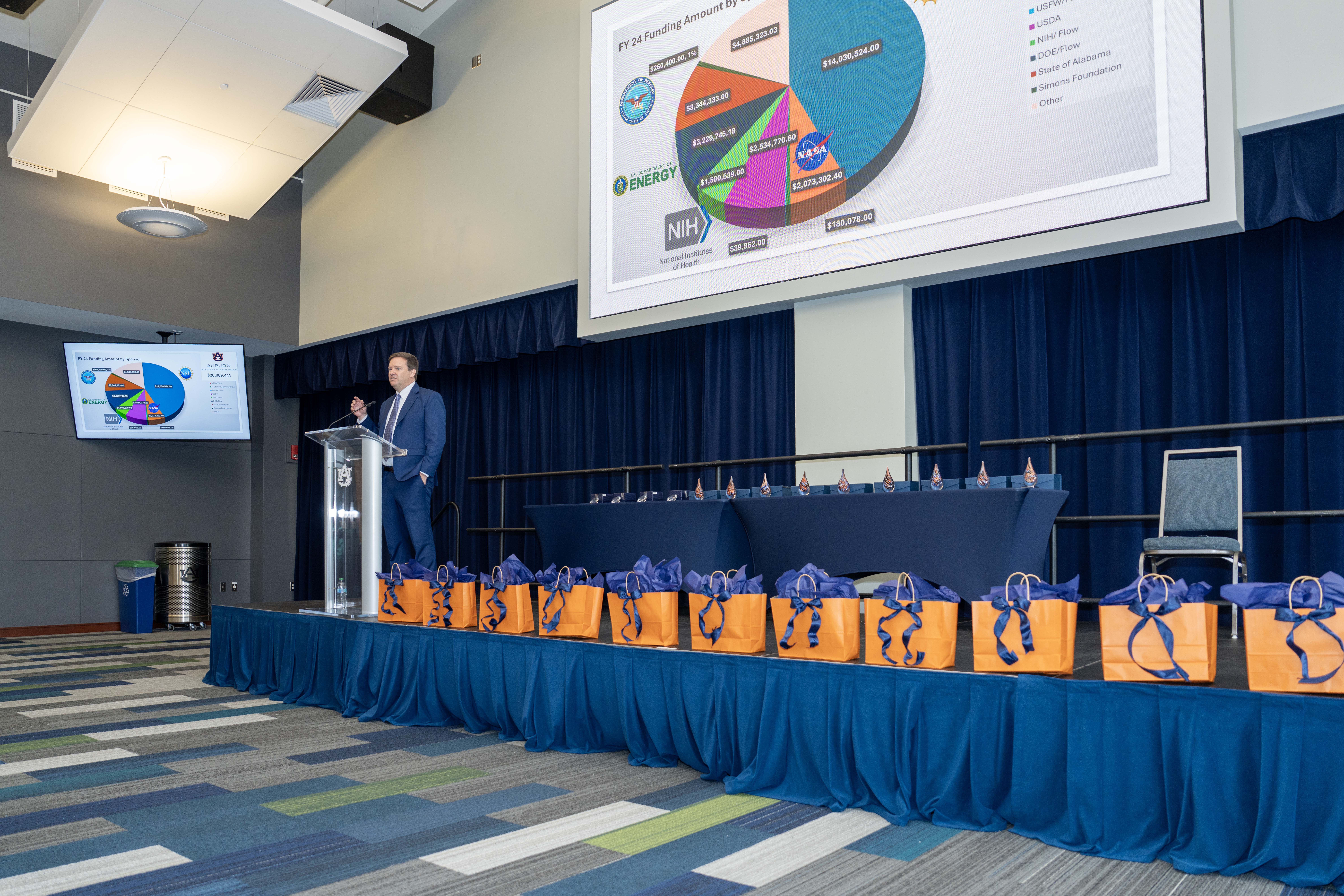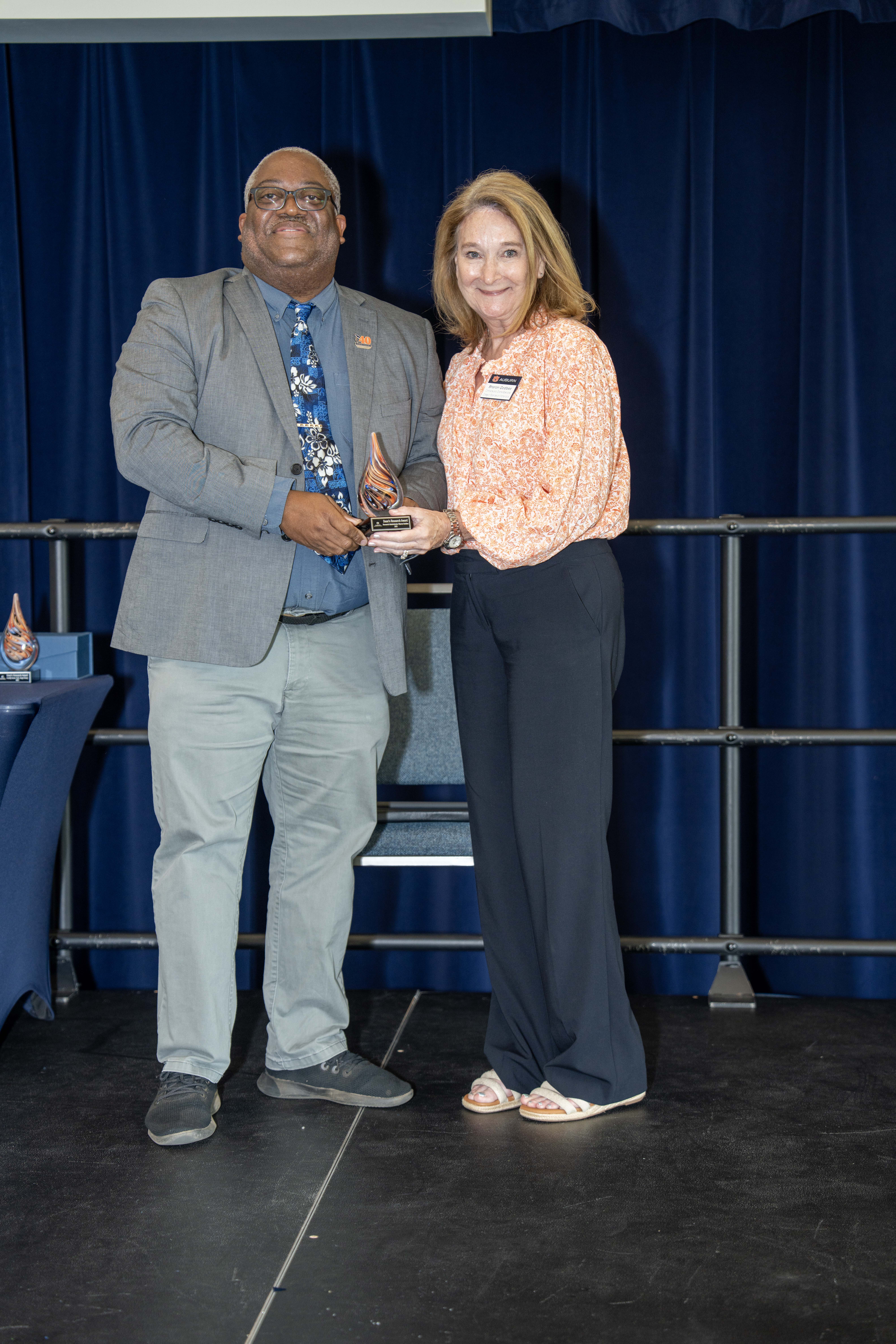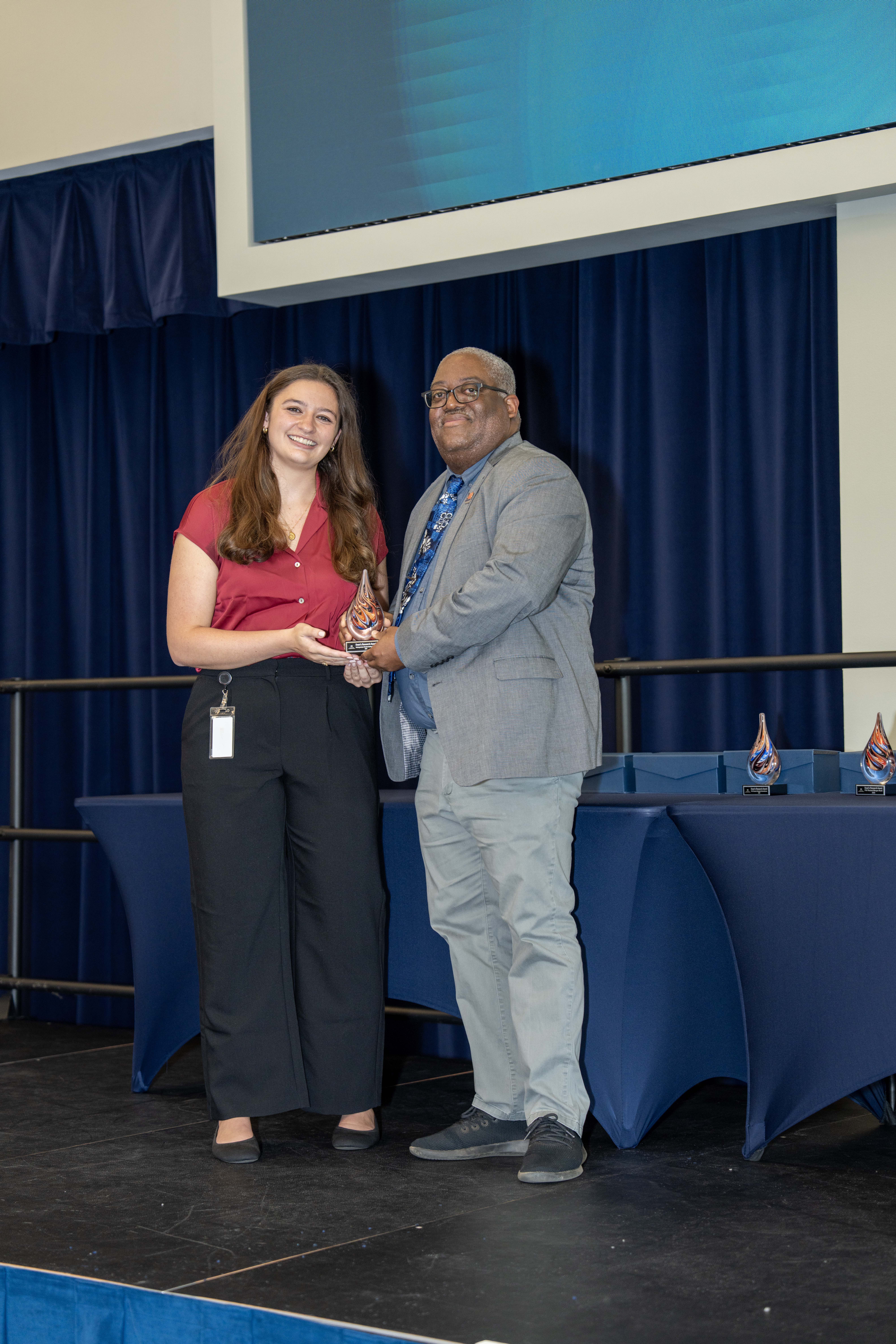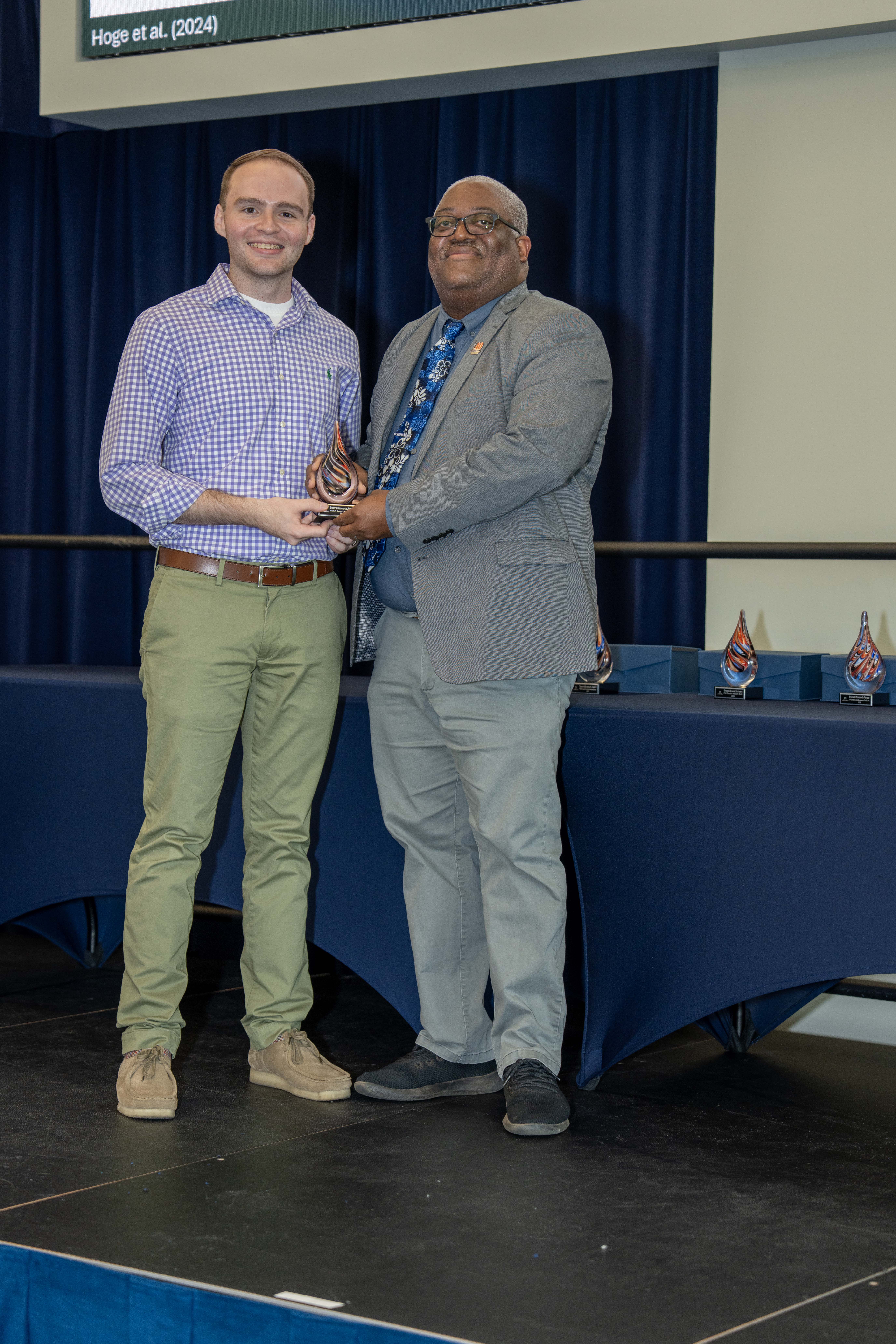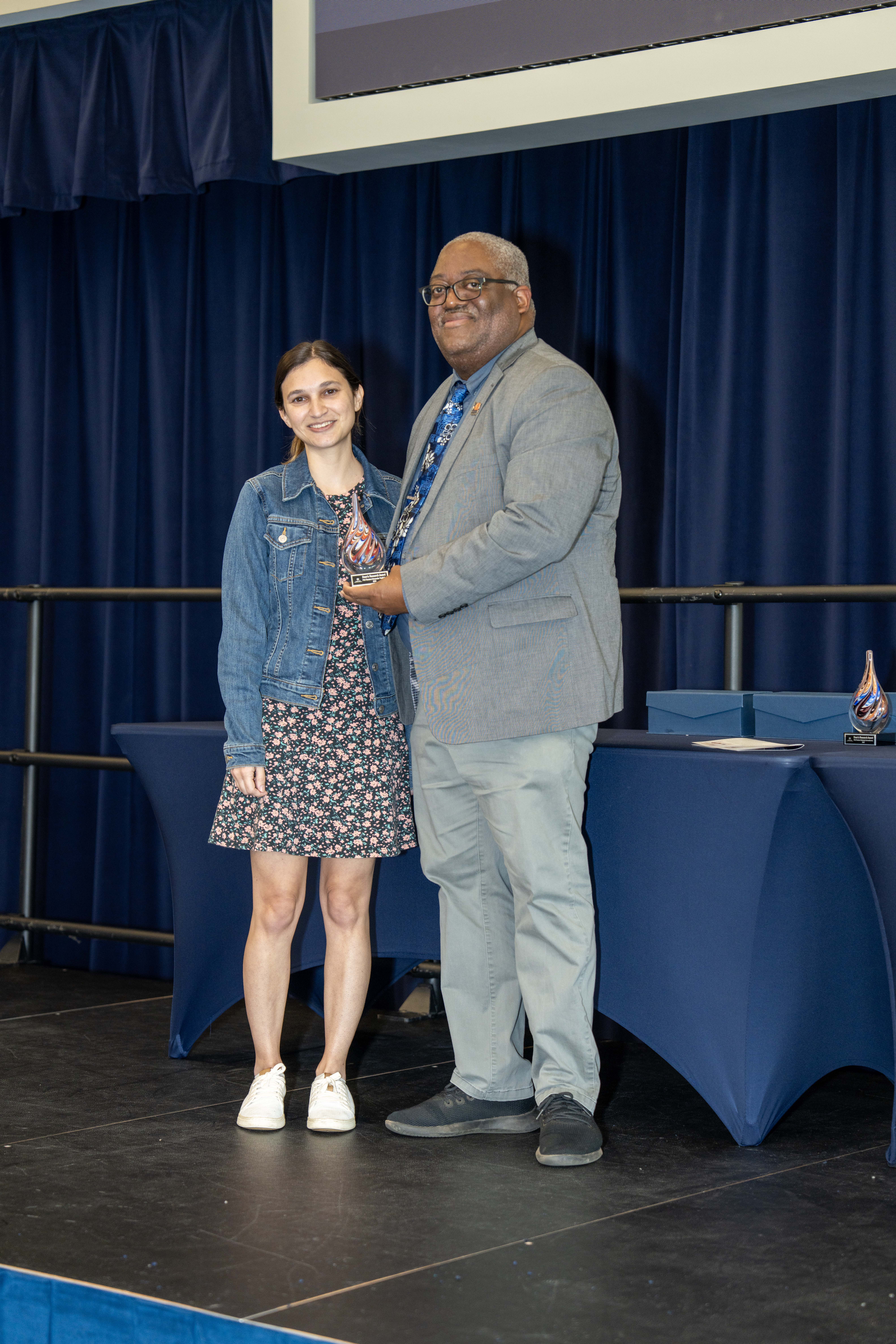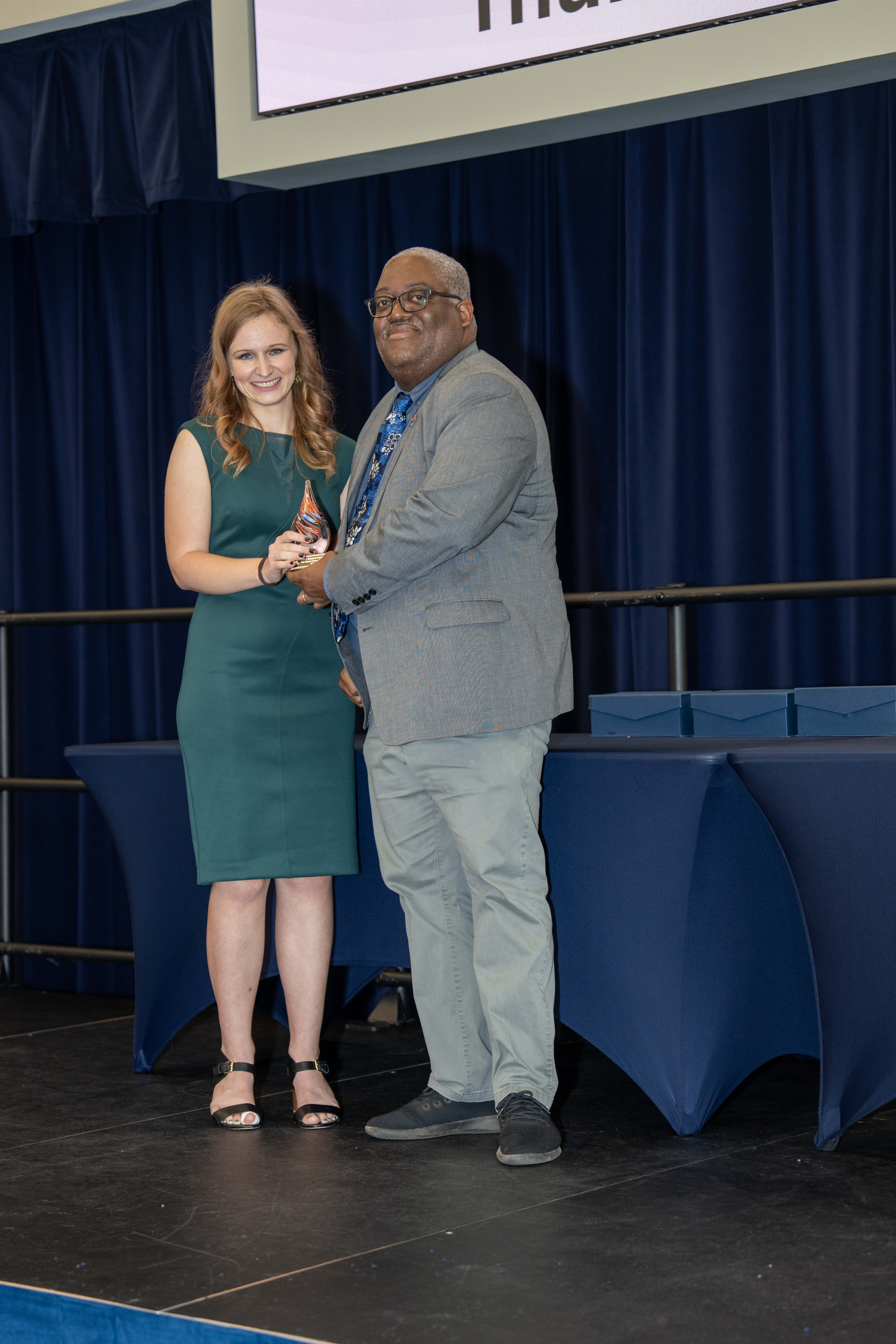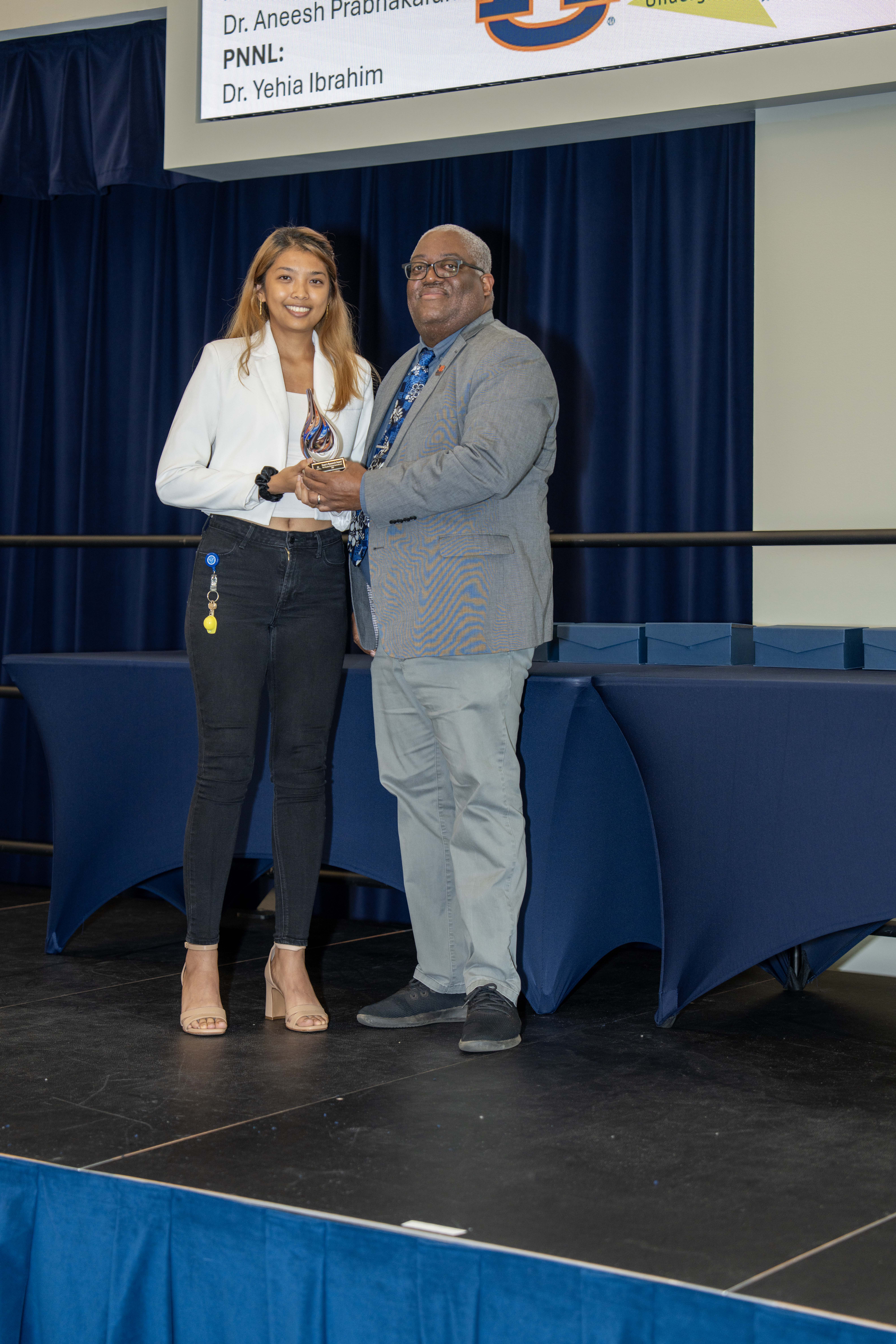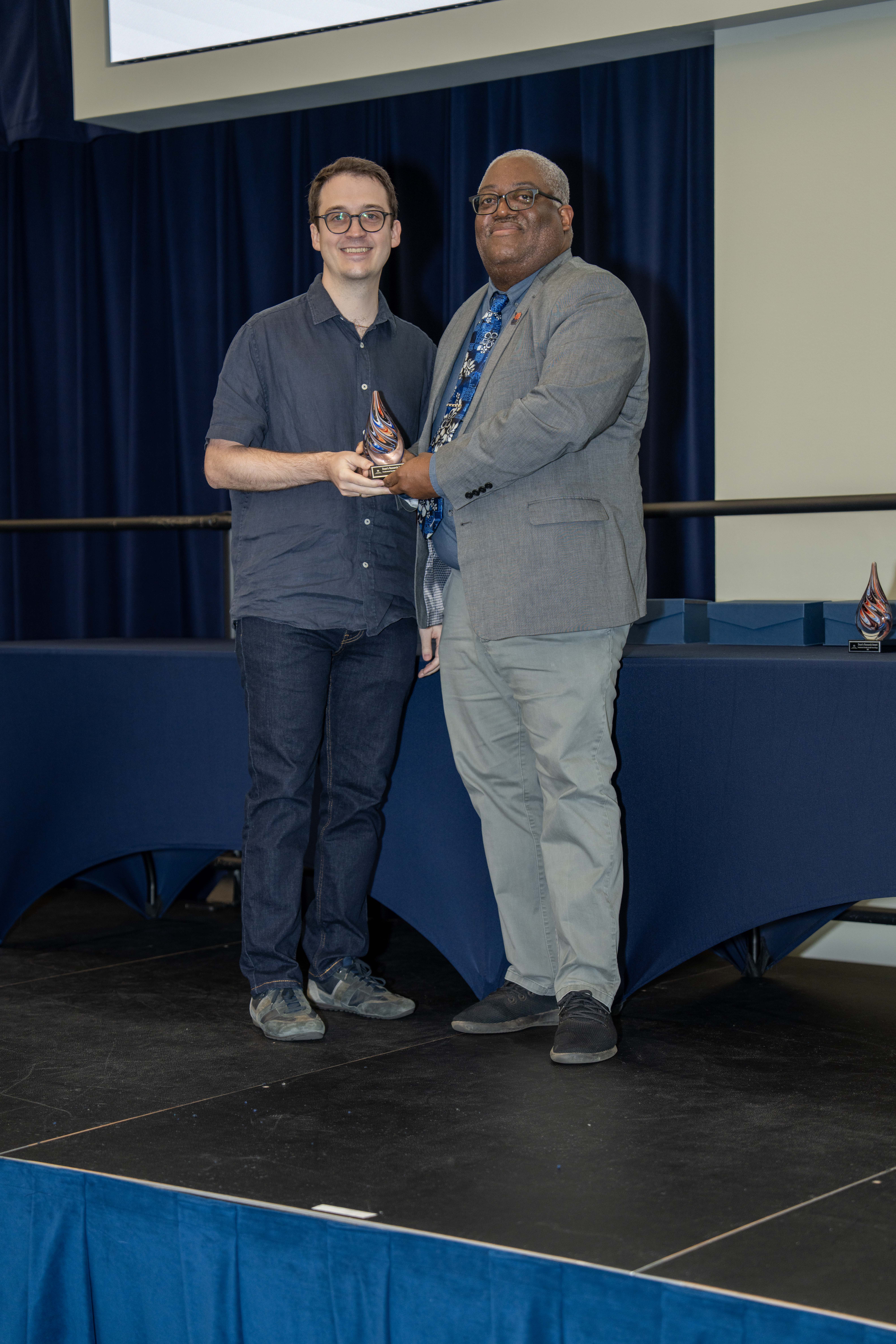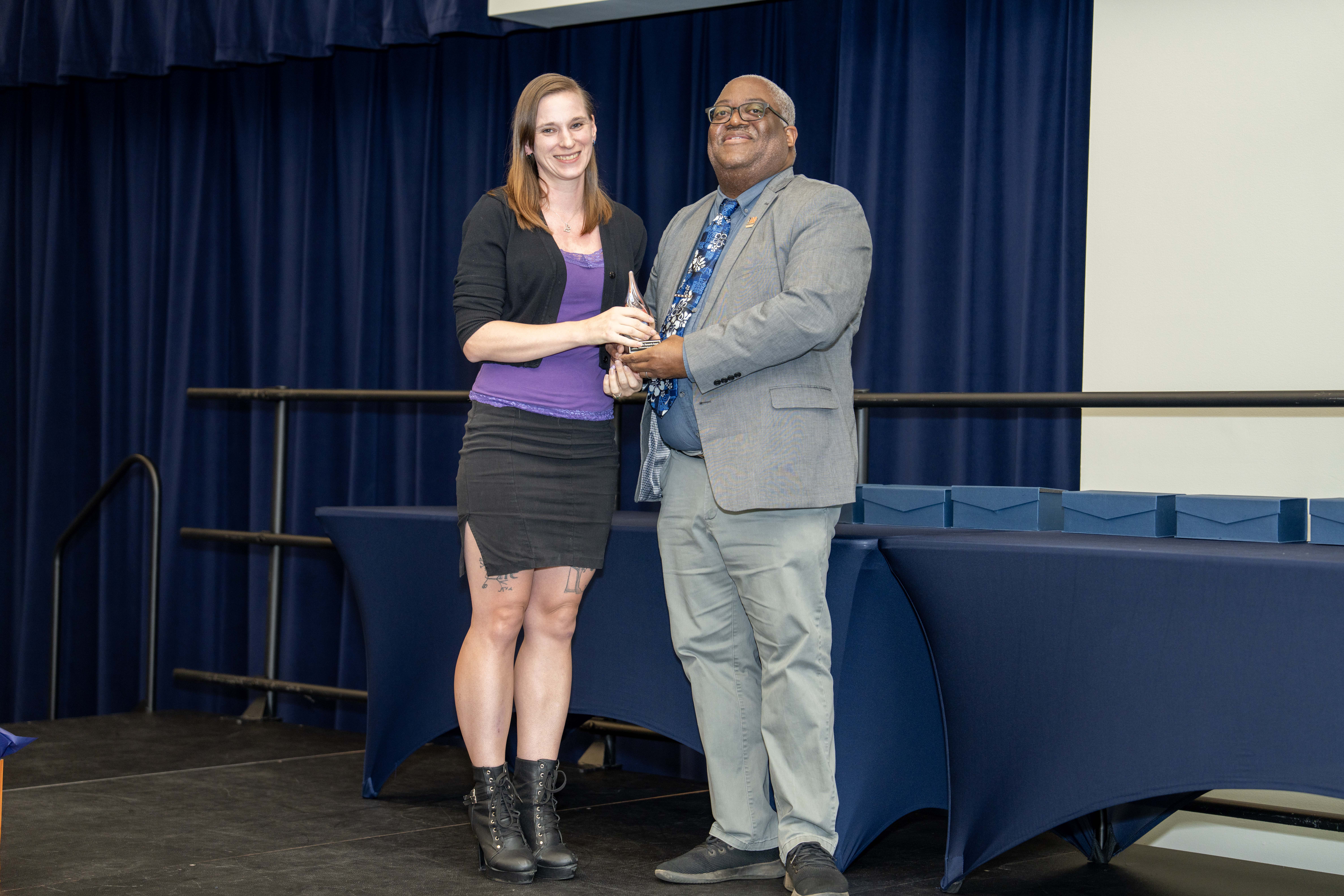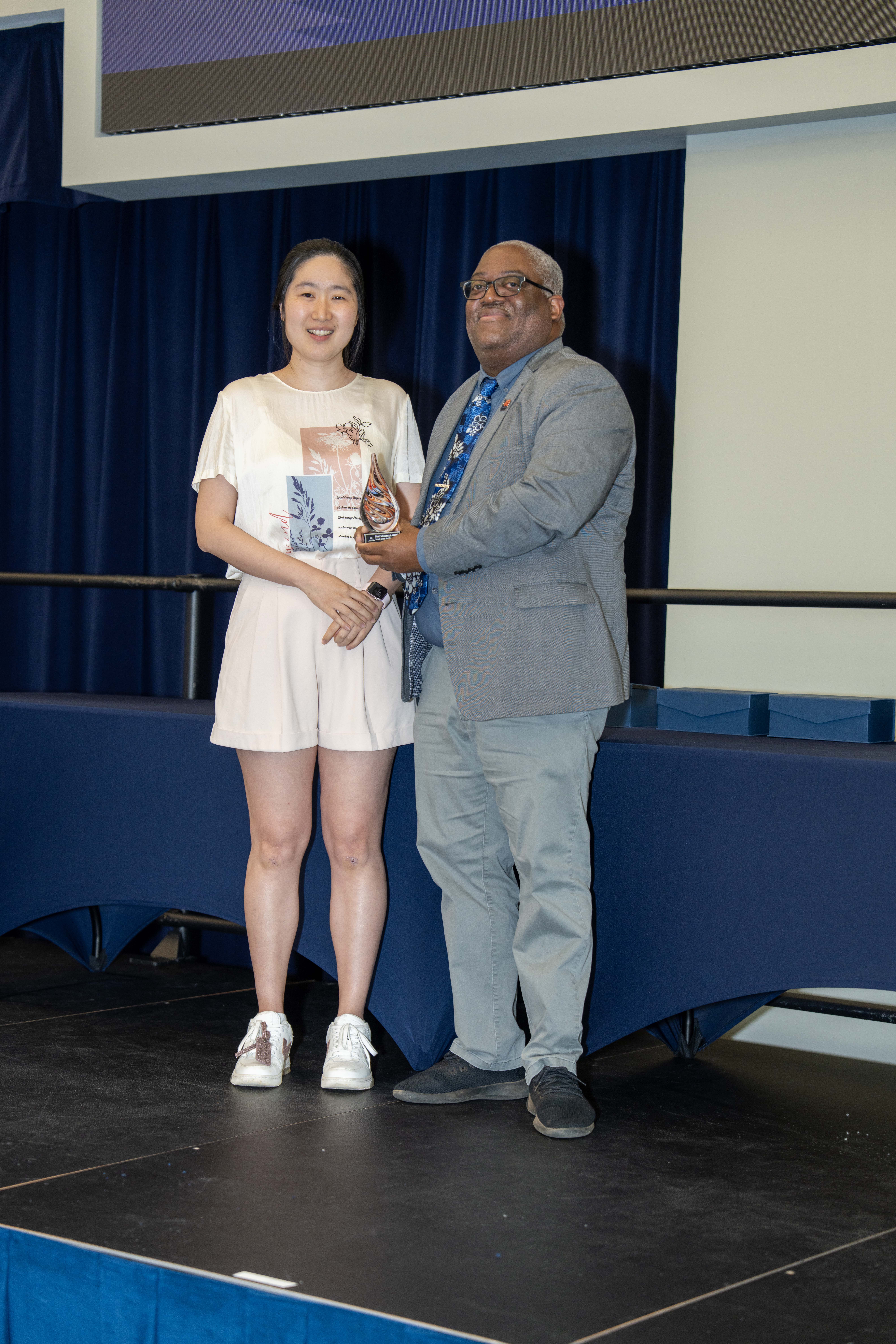content body
The College of Sciences and Mathematics recognized student, postdoctoral, faculty and staff accomplishments at the annual Research and Innovation Celebration on Sept. 16. The event also honored members of the COSAM community who had exhibited strong perseverance and the collaborative efforts that support COSAM’s research mission.
“Having numbers like we have right now is pretty stunning,” Dean Edward Thomas said. “I am exceedingly proud of what this college has been able to accomplish in research.”
Mark Liles, associate dean for research, opened the ceremony by highlighting the teamwork that led to COSAM reaching over $27 million in funding this year, which is a new record for COSAM. “It really takes an entire ecosystem of researchers – PIs, graduate students, postdocs, staff and research administration – we all contribute to those numbers together,” Liles said.
The first COSAM Perseverance Awards were presented to Cissy Balen, Paula Adams, Kimberly Mulligan and Brittany McCullough for their dedication in the face of obstacles.
In another first, Sharon Godbee received the inaugural staff Dean’s Research Award. Thomas praised her contributions, noting how Sharon Godbee had helped so many people achieve their research goals, including his own research team. Thomas also highlighted the importance of staff support in advancing COSAM’s research goals.
The members of COSAM’s research admin team honored outstanding faculty who they felt worked most proficiently with them in proposal preparation and grant management. Pre-Award Superstars included Rodney Tollerson, Paul Ohno, Tom Cullen, Haoran Li, Eric Burkholder and Jessica Gilpin. Post-Award Superstars were Matthew Wolak, Byron Farnum, Stephanie Rogers, Melinda Lanius and Eva Kostadinova.
Undergraduate student Ashley DeSilva received the first Dean’s Research Award of the afternoon. “In the four years that I’ve been doing research, I worked on projects from NASA’s Europa mission to developing recombinant vaccines for agricultural pathogens,” DeSilva said. “These experiences shaped my path toward a PhD in immunology and vaccine development, and I’m grateful for the support I’ve received at Auburn.”
Logan Havard, who was recognized for his master’s work, described a study of turtle recombination rates. “Our findings show that turtles may share unique recombination patterns with snakes, which opens up fascinating questions in evolutionary biology,” Havard said.
Three doctoral students were honored. Alexandra Tsalickis, from geosciences, applies fire history reconstructions and stable isotope analysis to conservation challenges. “By reconstructing fire histories across the past 12,000 years and analyzing isotopes from species like bison and bats, my work helps inform conservation strategies to improve ecosystem resilience and protect endangered species,” Tsalickis said.
Biological sciences student Morgan Muell examines developmental plasticity in lizards. “My dissertation explores why some organisms are more sensitive to early environments than others,” Muell said. “Understanding this plasticity helps us predict how lizards and other species might respond to global change.”
Kimberly Kartowikromo, from chemistry and biochemistry, focuses on Alzheimer’s disease detection. “I am developing fast, accurate and low-cost methods for identifying biomarkers of Alzheimer’s,” Kartowikromo said. “The goal is to create tools that make early diagnosis more accessible and improve treatment outcomes.”
Two postdoctoral researchers were also recognized. Valentin Kuechle, from mathematics and statistics, investigates how teaching practices shape the student experience. “From group work design to proof writing, my research is about improving the classroom experience for both students and instructors,” Kuechle said.
Jennifer Fenner, from biological sciences, studies animal development through sea urchins and hemichordates. “To understand the diversity of body plans, we have to start with embryogenesis,” Fenner said. “My work looks at how early molecular processes are conserved across species.”
The faculty Dean’s Research Award went to Jingyi Zheng, associate professor in mathematics and statistics. “I focus on developing AI models that turn massive, complex data into knowledge,” Zheng said. “From brain connectivity to cardiac risk prediction and even detection dog training success, the goal is to make real-world impact across disciplines.”
Liles closed the event by celebrating COSAM’s research community. “It’s such a privilege to work with these amazing people,” Liles said. “If we keep working together and supporting each other, we can keep doing globally relevant and impactful research – no matter what challenges we face.”



